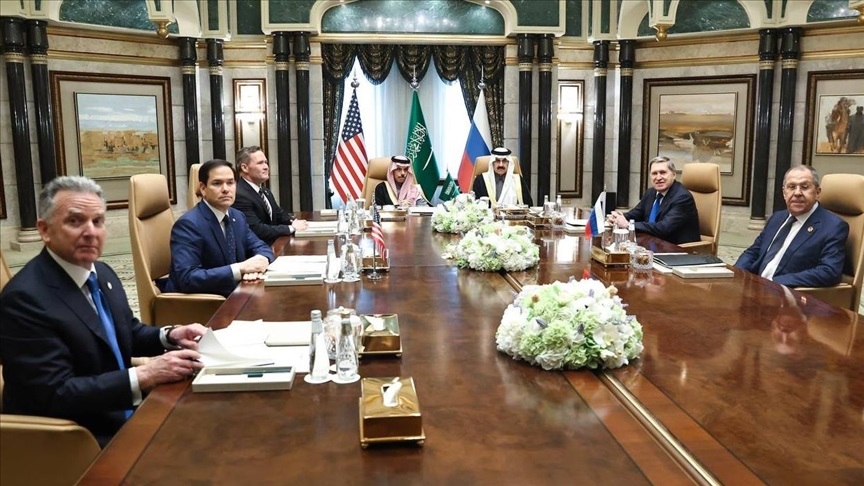 Talks between Russia and the United States in Riyadh, the capital of Saudi Arabia.
Talks between Russia and the United States in Riyadh, the capital of Saudi Arabia.
Photo: Reuters
Ukraine was laid out on the glossy conference table in Riyadh on Tuesday, not to be dissected on this occasion, but rather for an initial inspection by the Americans and Russians, who have reserved the carving knives for future use, writes ‘The Guardian’.
No Ukrainians were present for these opening discussions on the country’s fate, or for the lunch of whole lamb and “symphony of scallops”, nor was anyone there representing the rest of the European continent. Whether they will be given a seat at the table before lines are drawn is far from clear. For now, they must wonder if they are among the “irritants” in US-Russia relations referred to by the US state department.
Rubio is the most traditional foreign policy Republican in the Trump team, and he seemed anxious throughout. Notably, the former Florida senator did not repeat pledges he had made two days earlier in Jerusalem, that Ukraine and Europe would have to be at the table for any substantive talks, and that a settlement would respect Ukrainian sovereignty.
When asked in Riyadh on Tuesday about Kyiv and Europe’s sense of being sidelined, the secretary of state retorted that “the world should be thanking President Trump” for getting the peace process this far.
Rubio insisted that any enduring peace deal would have to be acceptable to the warring sides, but Trump’s rhetoric thus far raises questions over whether he shares that outlook. He has raised the prospect that ultimately, once everything has been said and done, Ukraine could end up being Russian.
The culmination of the Riyadh process, the US delegation made clear, will be a summit encounter between Donald Trump and Vladimir Putin, two leaders who share an imperial bent that leans towards great power spheres of influence.
It will not be the first time superpowers meet in the Middle East to divide a European state. The Tehran Conference in 1943 put a line right through eastern Europe. In Riyadh, Trump will take the Roosevelt role and Putin will play Stalin. It is long past the time when there was a place for a Churchill. Britain has joined the anxious European voices a long way offstage.
In this back-to-the-future world, Russia is fully restored to the top table, its status assured by the size of its nuclear arsenal. Lavrov was delighted with the outcome of Tuesday’s meeting, noting the two sides “did not just listen to each other, but heard each other”. He predicted that follow-on talks would begin “as soon as possible”.
As the chairs were being put away and the floors mopped in the Diriyah Palace, a new paradigm seemed to be coming into focus, one that was familiar from the 19th century and the cold war: great powers will make the decisions, while lesser states will anxiously wait for the big boys’ meetings to finish, and then call Riyadh to find out what has been decided.
read more in our Telegram-channel https://t.me/The_International_Affairs

 10:29 20.02.2025 •
10:29 20.02.2025 •






















